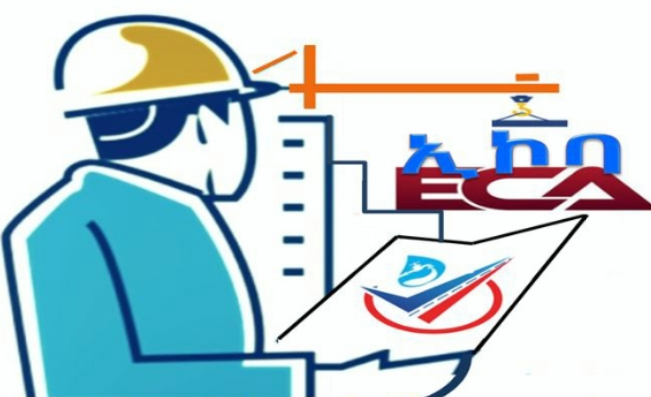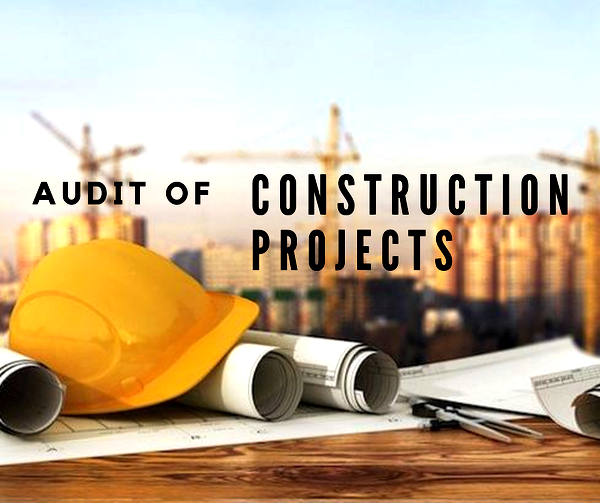By Eng. Mesfin Negewo( ECA G/Director)
A construction industry audit is a comprehensive examination and evaluation of the financial, operational, and regulatory aspects of a construction company or project. It is conducted to assess the effectiveness and efficiency of the company’s internal controls, risk management practices, financial management, and compliance with relevant laws and regulations.
The major works or areas typically covered in a construction industry audit include:
- Financial Statement Audit: This involves examining the financial statements, such as the balance sheet, income statement, and cash flow statement, to ensure that they accurately reflect the company’s financial position, performance, and cash flows.
- Contract Management Audit: This focuses on assessing the company’s contract management processes, including contract administration, compliance, and performance evaluation. It examines the adequacy of contract terms, documentation, project milestones, change orders, and dispute resolution mechanisms.
- Cost Estimation and Control Audit: This involves evaluating the company’s methods for estimating project costs, tracking expenses, and controlling budget overruns. It assesses the accuracy and completeness of cost estimates, allocation of costs to different projects, and adherence to cost control measures.
- Project Management Audit: This examines the company’s project planning, scheduling, and execution processes to ensure that projects are delivered on time, within budget, and in accordance with quality standards. It assesses project documentation, resource allocation, risk management practices, and performance evaluation.
- Regulatory Compliance Audit: This focuses on verifying the company’s compliance with relevant laws, regulations, and industry standards. It includes assessing adherence to health and safety regulations, environmental regulations, labor laws, taxation requirements, and licensing and permit obligations.
- Internal Control Audit: This evaluates the effectiveness of the company’s internal control systems in mitigating risks, preventing fraud, and ensuring the accuracy and reliability of financial and operational information. It covers areas such as authorization processes, segregation of duties, physical control over assets, and systems security.
- Subcontractor and Supplier Audit: This involves reviewing the company’s relationships with subcontractors and suppliers, assessing their financial stability, compliance with contractual obligations, and quality of work or materials provided.
These major works together help in providing a comprehensive assessment of the construction company’s financial management, operational efficiency, risk management practices, and compliance with industry standards and regulations. The findings and recommendations from the audit can be used to enhance the company’s operations, mitigate risks, improve financial performance, and maintain regulatory compliance.
The major similarity and differences of a construction industry monitoring, inspection and audit.
In the construction industry, monitoring, inspection, and audit are crucial activities that ensure compliance with regulations, quality standards, and safety measures. While they share the common goal of assessing construction processes and project outcomes, there are significant differences in their scope, focus, and methods.
Construction Industry Monitoring:
- Monitoring involves continuous observation and surveillance of construction activities throughout the project lifecycle.
- The primary objective of monitoring is to identify any deviations from the approved plans, specifications, and regulatory requirements.
- It is a proactive process that helps ensure adherence to project schedules, quality control measures, and environmental management guidelines.
- Monitoring often involves on-site visits, document reviews, and periodic progress reports.
- Key areas of focus include tracking construction progress, identifying and addressing issues or non-compliance, and assessing the performance of construction teams and contractors.
Construction Industry Inspection:
- Inspection is a more detailed and targeted examination of specific construction elements, systems, or components.
- The main objective of inspections is to verify compliance with applicable codes, standards, and specifications.
- Inspections are typically carried out at predetermined milestones, such as critical construction phases or completion of specific work packages.
- Inspections may include physical measurements, non-destructive testing, documentation review, and verification of material certifications.
- Key areas of focus include structural integrity, fire safety measures, electrical and mechanical systems, plumbing, and overall compliance with building regulations.
Construction Industry Audit:
- Audit is a comprehensive and systematic examination of construction projects, processes, and controls.
- The primary objective of an audit is to evaluate the effectiveness of internal controls, risk management practices, and financial aspects of construction projects.
- Audits are conducted by independent professionals or internal audit teams and follow established audit methodologies.
- Audits assess compliance with regulatory requirements, contract terms, financial management practices, procurement processes, and overall project governance.
- Key areas of focus include budget control, cost estimation and tracking, contract management, documentation accuracy, and adherence to industry best practices.
In summary, while monitoring, inspection, and audit are interrelated activities in the construction industry, their scope, objectives, and methodologies differ significantly. Monitoring focuses more on continuous surveillance and progress tracking, inspection involves detailed examination of specific construction elements, and audits encompass a comprehensive evaluation of project controls, compliance, and financial aspects.

